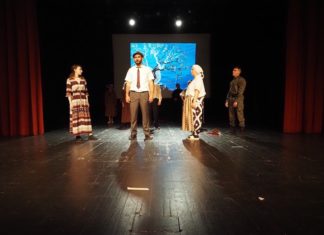Recently, on 8th April, International Romani Day was celebrated. On that occasion, Croatian mainstream media dedicated quite a few texts to the Roma. As far as the Roma community is concerned, it can be said that Croatian media are dealing with this topic almost exclusively occasionally and incidentally.
Occasionally when important dates are marked and incidentally when an accident/ crime/criminal act occurs involving Romani people and they still consider it right to point out that it was done by a member of the Roma minority and not an “ordinary” citizen.
Based on the research of Croatian print media, conducted by Igor Kanižaj from the Faculty of Political Sciences in the period 2001-2005, topics of everyday life of minorities is dominated by crime (45 percent), and the actors are always Roma. Most of the discriminating texts were about the Roma.
Years later, the situation does not seem better. Last year an almanac Hate speech in Croatia was published with the article by Viktorija Car entitled The Media Power: between freedom of speech and hate speech, emphasizing that the media continue to spread intolerance and exclusivity towards minority social groups. As far as the Roma community is concerned, there is still a problem of labeling, which in practice means transferring responsibility from an individual who has done something bad to the whole group, thus harming the entire minority community.
In the recently published article in Jutarnji List daily, on the occasion of the International Romani Day, although it seems at first that the intention was to show the diversity of existence and life within the Roma community, finally some old and harmful stereotypes “got through the article”. Thus, the article presents a child who is still unable to present himself and his story is presented in the first person by a journalist. The story, entitled I am a minor Roma as well as my dad, goes like this:
“I was born recently, on February 12, 2018, in Slavonski Brod. My mom Kimeta Alija is 18 years old and has lived in an orphanage until recently. My dad, Dalibor Gjurgjevic is still a minor, 17 years old but very good and caring. I’m already making money: we have a 2300 HRK maternity allowance and another 300 HRK child benefit. We all live in my grandfather’s house, Dalibor’s father.”
It is very clear the problematic way in which this story is framed and how journalist contextualized it, emphasizing “I am a minor Roma as well as my dad” and “I am already making money”. The reader gets the sketched “principle of existence since childhood” which is generalized across the entire Roma community. There is nothing nice about this.
The media world, of course, is not isolated from society, and discrimination of the Roma in the media is a reflection of a wider social discrimination and marginalization. However, there are laws whose implementation should provide different media practices. Journalists’ responsibility is exactly educating the public on accepting and integrating minorities.
On that same day, Jutarnji list published another text in which the same space was dedicated to the messages of Pope Francis and the leader of the far-right party Matteo Salvini – Pope Francis called for mutual respect, Salvini called the Roma to steal less and work and educate themselves more.
Publishing statements like Salvini’s in the way Jutarnji list made it – without any criticism, without journalistic reflection and warning of how and why it is wrong and harmful to make such statements, is extremely dangerous. This gives the same room for hate speech and democratic speech, calling for condemnation and insult against the call for tolerance and integration – equals them and sends the message to the reader that it is about equally valuable and legal content.
We therefore need better editorial policy, more serious and accountable internal and external media monitoring and critical access to discrimination that many journalists have unreservedly accepted as a status quo, as a factual situation and an instruction for action where nothing is wrong. These are the battles that we probably think should have ended up long ago, but they still follow us every step of the way.












